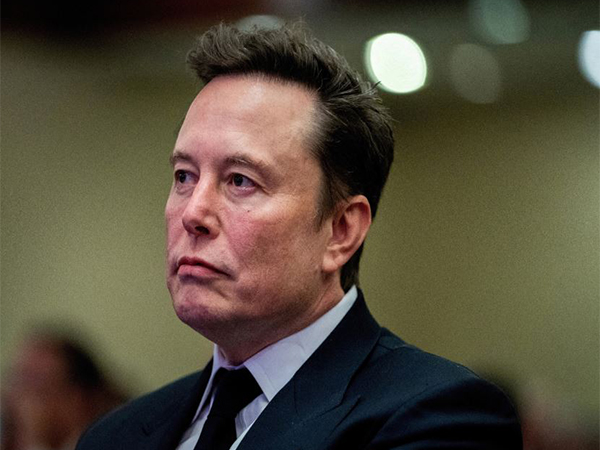
Washington, May3: Tesla’s board of directors has issued a strong denial following a report by The Wall Street Journal alleging that the company had initiated a search for a new chief executive officer to replace Elon Musk. The article claimed that concerns over Musk’s growing involvement in U.S. government affairs- especially his role in the Trump administration- had led board members to engage recruitment firms as early as March to identify potential successors.
The report cited anonymous sources said to be familiar with internal discussions at Tesla, suggesting that some board members were uneasy about Musk’s expanding portfolio beyond Tesla, particularly his active participation in political decision-making as head of the Department of Government Efficiency (DOGE), a body formed under the Trump administration.
In a swift rebuttal, Tesla Chair Robyn Denholm took to the company’s official X (formerly Twitter) account to call the story “absolutely false.” She reaffirmed the board’s unwavering support for Musk, stating, “The CEO of Tesla is Elon Musk and the Board is highly confident in his ability to continue executing on the exciting growth plan ahead.”
Elon Musk himself reacted strongly to the report, describing it as “a deliberately false article” and criticising the Journal for not including what he described as “an unequivocal denial beforehand by the Tesla board of directors.” He accused the publication of unethical journalism, adding, “It is EXTREMELY BAD BREACH OF ETHICS.” Despite the denials, The Wall Street Journal stood by its report, asserting that Tesla was given a chance to comment prior to publication but declined to provide a statement at the time. A spokesperson for the paper said, “Tesla was given the opportunity to provide a statement before publication, which they did not do.”
The controversy unfolds during a critical period for Tesla, as the electric vehicle (EV) maker grapples with declining financial performance and increasing scrutiny over Musk’s political affiliations. Over the past several months, Musk has become a prominent figure in the Trump administration, regularly attending Cabinet meetings and reportedly playing a key advisory role. His dual responsibilities-running a publicly traded automotive and energy company while contributing significantly to federal governance-have drawn both intrigue and criticism.
One such Cabinet meeting drew media attention when Musk, wearing multiple hats quite literally and figuratively, joked, “Well, Mr. President, you know they say I wear a lot of hats.” Trump, in turn, praised Musk’s contributions, saying, “You have been treated unfairly, but the vast majority of people in this country really respect and appreciate you… You’re invited to stay as long as you want.” However, pressure from within Tesla’s ranks appears to have prompted Musk to reassess his time commitments. Last week, Musk informed investors that he would be scaling back his role at DOGE to prioritize Tesla.
“My time his long-term vision for allocation to DOGE will drop significantly,” Musk stated during an investor call. “Starting next month, I’ll be allocating far more of my time to Tesla.” The Wall Street Journal article suggested that this shift may have been prompted by concerns voiced by Tesla board members, who allegedly urged Musk to publicly renew his commitment to the company.
Musk did not resist these requests, according to the report. Meanwhile, Tesla is also contending with mounting shareholder frustration and worrying financial signals. In its most recent earnings report, the company revealed a dramatic 71% year-on-year drop in net profits for the first quarter-marking its worst quarterly performance in several years.
This decline was largely attributed to falling EV sales, with Q1 deliveries down 13% from the same period last year. Profit margins have also taken a hit, falling to their lowest point in nearly six years. Amid the uncertainty, Tesla suspended its full-year guidance, deepening investor anxiety about the road ahead.
Analysts point to growing global competition in the EV sector, slower-than- expected adoption in certain markets, and the high costs of Tesla’s rapid expansion as contributing factors to its weakening profitability.
While Musk has repeatedly emphasized Tesla-highlighting future Al developments, robotics, and energy storage as key growth areas-the current financial picture has left many stakeholders questioning whether the CEO can continue to juggle his varied commitments without compromising the company’s focus.
The public debate over Musk’s role has also rekindled broader questions about governance at Tesla.
Critics have previously argued that the board lacks independence and is overly deferential to Musk, who holds significant influence not only within the company but also in shaping its public image and strategic direction. The unfolding saga has thus raised the stakes for both Tesla’s leadership and its long-term investors.
While official denials have temporarily quelled speculation about an imminent CEO change, the concerns that sparked the rumors-ranging from Musk’s government involvement to Tesla’s weakening performance- remain unresolved. For now, Musk remains firmly at the helm of Tesla, and the board appears intent on maintaining that arrangement.
But the situation has underscored the volatility surrounding one of the world’s most high-profile CEOs-and the complex balancing act involved in steering a multi-billion-dollar tech company while playing an increasingly visible role on the political stage.
For now, Musk remains firmly at the helm of Tesla, and the board appears intent on maintaining that arrangement. But the situation has underscored the volatility surrounding one of the world’s most highprofile CEOs—and the complex balancing act involved in steering a multi-billion-dollar tech company while playing an increasingly visible role on the political stage.
